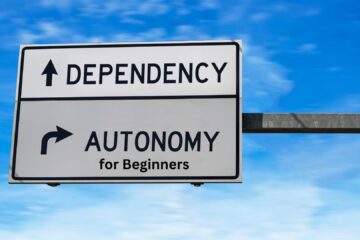Back in the 1950s in the US, A gentleman named Robert Solow tried to figure out what caused the US economy to grow over the previous 50 years and could only account for 13% of it, based on labor. This could include efficiency or innovation. This was embarrassing, so the remaining 87% was attributed to ‘technical change’ Eventually, they finally came to the most logical conclusion. It was fossil fuels 1 gallon (3,75 liters) equals 47 days of hard human labor Historically, there must have been an inflection point where the use of technology, fueled by energy, ended up being much more efficient than slavery 1 barrel, equating to 25,000 hours of human labor (12.5 years at 40 hours per week) The average American uses 60+ barrels of oil equivalent(oil, gas, and coal) per year (360 billion joules), which implies a fossil fuel ‚slave‘ subsidy of around 60-450 ‚human years‘ per person The human body can’t digest much over 2500 Calories per day http://theoildrum.com/node/4315 We don’t think of the cost because many of us don’t have to. There is an inverse effect between disposable income, use of energy, and striving towards convenience Convenience = time, but not necessarily value. Is there a relation between time saved and the value through the activities due to saved time? Will we ever be able to create solutions by which people strive toward less-convenient solutions? Ha ha ha! Instead, we have activities such as World Cleanup Day, an indulgence payment for some previous non-ascetic transgression. Digitalization is convenience on steroids New ecosystems mean new ways to create convenience and new players to make it happen Convenience as an external motivator Internal motivator – autonomy and masters External motivator – pay, title Convenience as a necessity Because we feel we must be continuously occupied, time is more valuable than money We pay directly or indirectly (use of energy, creation of waste) The problem with the indirect costs is that we pretend they don’t exist because it never hits our bank account The convenience cat is out of the bag, and this contributes to the 87% of ‘growth’ we are not able to quantify. Induced Convenience Is our reliance on convenience partially related to the concept of induced demand? How to solve? Discussion – C2C, where they said, “we just need to raise the price” Can this squeeze the actors of the supply chain even further, especially those who provide the human input for a subservient wage? Who get’s the extra money? What does this prove? Rich get richer, and the poor get poorer
Majitel média
Stanice
Vyrobeno
07. prosince 2021
Zveřejněno
18. července 2022
Vysíláno
07. prosince 2021, 00:00
Redakce
Michael Boyle
Témata
Jazyky




















